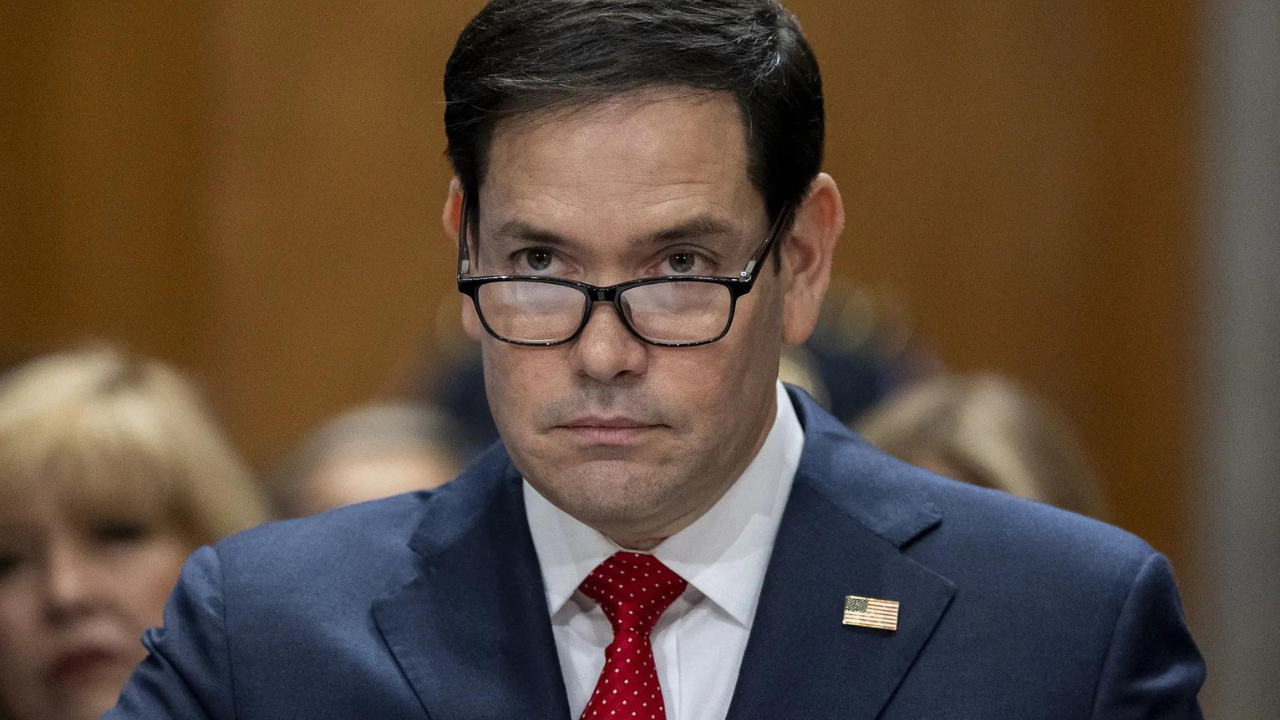Did China Just Send a Veiled Warning to America's Top Diplomat? The phone call between US Secretary of State Marco Rubio and China's Foreign Minister Wang Yi left many wondering what exactly was said. Reports indicate a thinly veiled warning from Wang, hinting at expected responsible behavior from Rubio. This article delves deep into this intriguing diplomatic exchange and what it means for US-China relations.
Decoding the Diplomatic Warning: What Did China's Foreign Minister Say?
China's Foreign Minister, Wang Yi, conveyed a message to US Secretary of State Marco Rubio during their first phone call. While the official US statement downplayed the specifics, reports suggest Wang's message included a thinly veiled warning. The exact wording remains undisclosed, but sources indicate it expressed the expectation that Rubio would "behave accordingly." This phrase, while seemingly courteous, carries a significant weight of expectation in the context of China-US relations.
The Nuances of the Chinese Phrase: More Than a Simple Warning
The subtlety of Wang Yi's words is noteworthy. The chosen phrase in Mandarin often denotes a warning from a superior to an inferior, like a teacher reprimanding a student or a manager advising an employee. Such veiled warnings in diplomatic interactions necessitate thorough comprehension. The phrasing used, as noted by Zichen Wang, a researcher at the Center for China and Globalization, permits diplomatic engagement while still implicitly signaling expectations and delivering a stern message to behave in a respectful manner. It avoids any immediate clash in diplomacy, yet implicitly delivers China's expectation for responsible and measured behavior from Rubio.
Rubio's Response and its Significance
Rubio's response, while publicly mentioning US interest advocacy in US-China relationships, showed no immediate acknowledgment of Wang's perceived warning. The US statement made no specific reference to Wang's implied warning. The ambiguity maintains the ongoing engagement with China while subtly refusing to engage in confirmation or denial of any implied threats, ensuring continued communication.
Rubio's Stance on China: A History of Tensions
Marco Rubio has consistently demonstrated a strong stance against China's human rights record and practices. In fact, this vocal criticism of the nation resulted in two separate rounds of Chinese sanctions against Rubio. It is highly possible that Wang's message reflects an intention to set expectations for the Rubio administration in advance, to prevent escalating issues which can be easily caused by inflammatory statements and strong stances, often leading to a quick degradation of communication.
A History of Strong Rhetoric: The Context of the Phone Call
Given Rubio's publicly documented critiques, Wang's veiled warning comes as no surprise. In past statements, Rubio demonstrated a profound disagreement and concern with China's practices and actions on the world stage. This strong vocal opposition provided sufficient grounds for diplomatic outreach via implied warning, before further disagreement or confrontation occurs.
The Importance of Context: Understanding the Message
When considering Wang's communication, the significance of China's context in response to Rubio's rhetoric is vital. Rubio's past critical commentary, and past rhetoric directed at the Chinese government, provided ample reason for concern and prompted Wang's implied threat. This necessitates further analysis of past interactions to gain better context in this most recent phone call.
US-China Relations: A Tightrope Walk
The US-China relationship has become one of the defining features of the 21st-century global geopolitical landscape. Maintaining a balance between advancing national interests and the necessity for engaging in responsible global diplomacy is critical. Wang's subtle admonition highlights the ever-present complexities in diplomatic exchanges between the US and China, while simultaneously providing insight into expected expectations going forward. The tightrope act between engagement and assertive actions continues as the current diplomatic atmosphere unfolds.
Navigating a Complex Relationship: The Challenges Ahead
The US-China dynamic necessitates a steady, careful approach. Both nations possess significant global power and influence. This power creates significant challenges which, when mismanaged, result in serious complications for diplomacy. Both parties must approach the diplomatic tightrope walk carefully and responsibly to achieve desired outcomes while respecting diplomatic engagement standards.
Looking Ahead: What to Expect in US-China Relations
The implications of this phone call remain uncertain, however the inherent ambiguity present ensures engagement. The subtle warning and lack of immediate reciprocation opens room for negotiation and allows for maintaining the delicate balance while providing necessary cautions and expectations moving forward. It's a high stakes game of diplomatic chess, and every move matters. This single interaction highlights the complexities inherent within diplomacy and international affairs, necessitating vigilance for what is to come.
Take Away Points
- China's Foreign Minister conveyed a veiled warning to US Secretary of State Marco Rubio regarding his actions.
- The specific phrase suggests an expectation of "responsible behavior" from Rubio.
- The interaction highlights the complexities and ongoing tensions in US-China relations.
- The subtlety of the warning and Rubio's response allows for the continuation of diplomatic interactions.
- Navigating this complex relationship carefully remains a key challenge for both countries.




